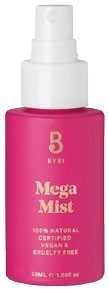Hyaluronic acid is a powerhouse ingredient that pulls more than its own weight when it comes to skincare benefits. Find out how it can fix your skin woes


You’ve probably heard that our bodies are made up of about 70 per cent water. If we don’t stay hydrated, our mental and physical functions decline and we feel sluggish. With skin, dehydration can cause sensitivity, redness, flare-ups, roughness, and lines. This is why with many beauty products, keeping your complexion moisturised is key. One of the popular humectants that beauty brands use is hyaluronic acid. Think of hyaluronic acid as sponges within your skin. Each molecule can attract and hold up to 1,000 times its weight in water, or about six litres of water for every gram of hyaluronic acid.
What It Does
Hyaluronic acid can be used any time through the day. It keeps the skin moisturised to make it feel softer, fine lines look less obvious and your complexion appear more dewy.
The thought of using an acid on your skin may sound intimidating, but know that your body naturally produces hyaluronic acid to keep your joints, eyes and skin lubricated. 50 per cent of the body's hyaluronic acid is found in the skin. As this gentle ingredient is generally nonirritating, hyaluronic acid and its derivatives have become more popular in skincare products over the years.
What It’s Best For
Hyaluronic acid can be added to creams to treat atopic dermatitis and used in serums for additional hydration. Studies have also shown that it might help with wound healing, so you can also use hyaluronic acid products after derma-rolling treatments or ablative procedures like lasers to reduce redness and inflammation. Besides these topical uses, hyaluronic acid has also been used as injectable fillers that dissolve over the course of a year.
What’s It Called Again?
There are many variants of hyaluronic acid, so on ingredient lists, you might see terms like “hydrolysed hyaluronic acid”, “sodium hyaluronate”, or “sodium acetylated hyaluronate”. If long-lasting hydration is your goal, look for “sodium hyaluronate”, a water-soluble salt form of hyaluronic acid, which has a smaller molecular size, allowing it to penetrate deeper into skin and delivering hydration where it’s needed most. Different forms of hyaluronic acid come in different molecular sizes. Some are too large to penetrate into the skin, so they sit on the surface providing temporary moisturising benefits. That's not all bad. On top of smaller-sized hyaluronic acid that can penetrate into the skin, larger ones are added to skincare formulas in order to provide hydration at every skin layer.
It Doesn’t Play Well With Other Acids
One study revealed that hyaluronic acid starts breaking down when mixed with highly acidic (under pH 4) and highly alkaline compounds (above pH 11). This means that if you like to create your own beauty blends, hyaluronic acid won’t be as effective when added into acid-based products like glycolic or alpha hydroxy acid (AHA) peels. You can, however, use hyaluronic acid products after your peels to calm skin.
SUPER HYDRATORS









Hada Labo Super Hyaluronic Acid Hydrating Lotion, $22.90 (170 ml), is formulated with four types of hyaluronic acid molecules. Its unique HPP& M Hydration Technology allows the active infusion of hyaluronic acid molecules of different molecular weight into different skin layers to hydrate so it becomes soft and supple.























